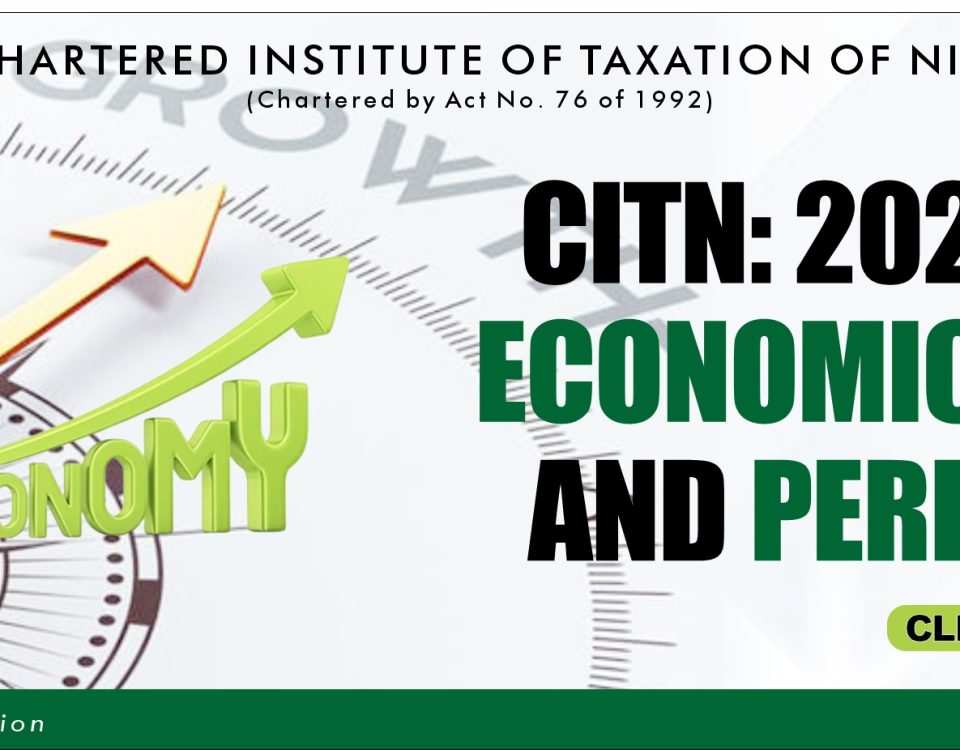- Have any questions?
- 09080888815
- 092918349
- citn@citn.org
Administration of Stamp Duties in Nigeria Under the Finance Act (Part 2)

Administration of Stamp Duties in Nigeria Under the Finance Act
September 10, 2021
Highlights of the Lagos State Value-Added Tax Law
September 16, 2021In the first part of this article that was featured in the previous week (02/09/2021), we discussed the administration of Stamp duties, dutiable instruments and how to stamp an instrument. In continuation of this topic, we will discuss some other aspects of stamp duties in Nigeria.
- TIME FOR STAMPING OF INSTRUMENTS
Stamp duties are payable on dutiable instruments listed in the schedule to the Stamp Duties Act (hereinafter SDA or the Act). Section 23 of the Act provides that all instruments chargeable with stamp duty may be stamped within 40 days from the first execution thereof upon payment of the charged duty except otherwise provided in any other law.
Failure to stamp the instrument within the prescribed period attracts a penalty in addition to the unpaid duty. Where the instrument to be stamped is chargeable with ad valorem duty, the instrument is required to be stamped before the expiration of 30 days after its first execution, or after its reception in Nigeria if it was first executed at any place outside the shores of Nigeria.
The limitation of 30 or 40 days will not apply where an instrument has been submitted to a Commissioner for his opinion before the expiration of the said 30 or 40 days as the case may be. In such a situation, the instrument may be stamped in accordance with the assessment of the Commissioner within 21 days after notice of the assessment. It should be noted that any incomplete document does not need a stamp and if the rate of duty changes before a document is complete, the document would be assessed with the new rate of duty. A document will be treated as complete when the last party executes it.
- WHEN MUST DUTY BE PAID
All duties imposed under this Act must be paid within one month after the liability to pay the duty arises, delay will render the assessment invalid or even attract further penalty.
- PENALTY FOR LATE STAMPING
Failure to pay stamp duties to the appropriate authority within the time stipulated in the SDA is an offence and it could attract penalty and interest.
- Where stamp duty is more than
N20, the penalty isN20 - Where stamp duty is more than
N20, penalty isN20 and 10% interest per annum from the day of first execution up to the unpaid duty. After 10 years, once cumulative interest is 100% of the unpaid duty, no further interest is charged.
- EXEMPTED INSTRUMENTS
- Admission as military advocate
- Affidavit or declaration made for the purpose of being filed in any court in Nigeria or before any judge or officer of such court
- Agreement or memorandum for the hire of any labourer
- Appraisement made in pursuance of the order of court in exercise of admiralty jurisdiction
- Bill or note issued by the Central Bank of Nigeria
- Letter or Power of Attorney or proxy filed in a High Court in connection with probate jurisdiction of the Court
- Transfer of shares in the Government or Legislative stocks or funds in Nigeria
- All instruments on which the duty would be payable by Government
- All documents relating to the transfer of stock and shares.
These instruments are only exempted from the payment of stamp duties, they will however be stamped in order to be admissible in evidence.
- OBJECTIONS/APPEAL PROCEDURE
A person who is not satisfied with the assessment of stamp duties may, within 21 days after the date of the assessment and on payment of duty, appeal against the assessment at the High Court of the State in which the assessment was made. Please note that in practice, this position is not consistent with the Federal Inland Revenue Service (Establishment) Act which requires appeals to be filed at the Tax Appeal Tribunal. In line with this, appeal may be filed at the relevant zone of the Tax Appeal Tribunal. This is according to section 68(2) of the FIRSEA which requires that the FIRSEA would prevail in case of inconsistency with other tax laws.



